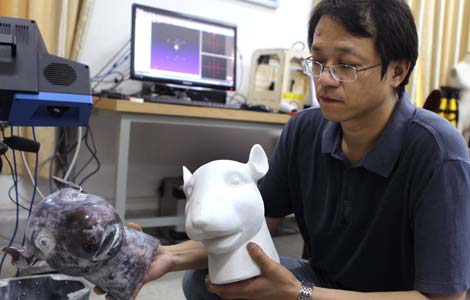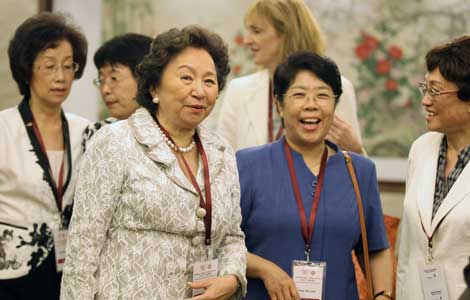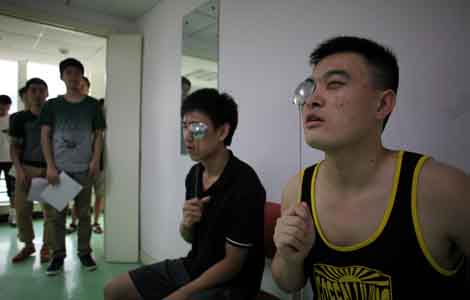Top US universities coach innovation
Updated: 2013-08-13 11:16
By Yu Wei in San Francisco (China Daily)
|
||||||||

More and more Chinese entrepreneurs are trying to improve their chances of sparking something new by attending training programs at top US universities, as innovation becomes their top priority.
"A healthy and sustainable innovation ecosystem will be the most conducive thing to developing businesses," according to 28 entrepreneurs from China's coastal province Jiangsu who just finished a 19-day session at Stanford University.
China now has an increasing number of government initiatives to support innovation and Jiangsu is one Chinese province where policy makers are gearing up to lead the country's national drive for innovation.
Within four months, the coastal province has sent three delegations of government officials and business executives to US universities for short-term training in innovation in entrepreneurship and technology.
In addition to the recent training program at Stanford, delegations studied at UC-Berkeley in June, and another will go to Harvard in September.
"China has experienced unprecedented economic growth in the past three decades. The country now faces the ongoing challenge of economic restructuring, as it gradually loses competitiveness in manufacturing, while gaining leverage in capital-intensive sectors," said Sudha Shetty, the assistant dean for International Partnerships and Alliances at Berkeley.
"Innovation is a necessary condition for such transition. Simply put, China needs to move up the 'food chain' to develop a higher value-added industrial sector," Shetty said.
A survey released earlier this year by the China Entrepreneurs Survey System found that 92 percent of respondents believe innovation in entrepreneurship and technology will be the key to supporting healthy and sustainable business development and the nation's transition from a fast-growing economy to one focused on both quality and quantity.
Meanwhile, the US, as the tech hub sparking startups and innovation and having the best universities in the world, could be playing a bigger role in helping China to incorporate innovation into its industrial transformation.
No one else understands the Chinese business environment better than the entrepreneurs themselves, Shetty said. For the US universities to create a meaningful training program, they need to constantly struggle to strike the perfect balance between being relevant and providing out-of-the-box thinking. "I guess the US universities such as Berkeley, do have the advantage of having many people, researchers who do think out of the box," she said.
The dean said this is particularly conducive to something such as innovation, where it's all about understanding how to take advantage of the unknown unknown.
"We offer such thought exercise to our visitors so that they will understand that innovation is not forced, but incentivized. Building many science and technology parks may not buy you innovation," she said. "There needs to be the policy environment and social environment that tolerates diversity and provides incentive for those who see the unknown unknown and are willing to lead."
Shetty said her school has been steadily growing its connection with China in recent years. "Our offering is expanding not only by the frequency of our course offerings, but also by the wide range of institutions that we are working with in China," she explained.
"I would say we currently have the capacity to host 10 to 20 diverse groups of Chinese delegations for customized training each year. However the demand might be beyond our bandwidth right at the moment," she said.
yuwei12@chinadailyusa.com
(China Daily USA 08/13/2013 page2)
Most Viewed
Editor's Picks

|

|

|

|

|

|
Today's Top News
Academy will turn a Hilton into a dorm for Chinese
Research funds spread across the globe
Reps gear up for TPP round 19
Brazil puts off bidding on bullet train
US to examine intelligence collection methods
Rare earth alliance to fight Japan's patent barrier
Economists cautious about China's recovery
Terrorist leaders sentenced to death
US Weekly

|

|













